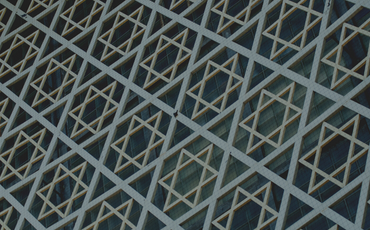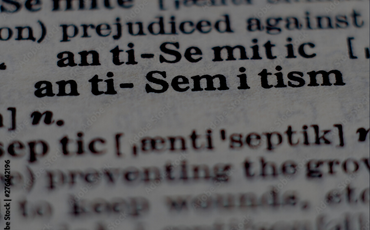Sadly, the history of the Holocaust is being increasingly manipulated and twisted on social media and online platforms. In addition to denial of the Holocaust, some seek to distort the facts to diminish or discredit its horrors, thus preventing society from reaching a full reckoning with this difficult past.
Those who deliberately distort the Holocaust may not deny the mass murder of European Jews but are often motivated by animosity toward Jews. Some seek to justify the Holocaust, blaming Jews for what happened to them, or to minimize these crimes by grossly underestimating the number of victims. Others willfully misrepresent historical records by omitting difficult parts of their own national history or by ignoring it altogether, downplaying the role of local perpetrators and collaborators in the Holocaust; inflating the number of helpers and rescuers; or glossing over the general population’s widespread complicity in the genocide.
The history of the Holocaust can also be distorted through universalization that decontextualizes the historical reality of the past. It is often unintentional, unrecognized, and not necessarily done with any antisemitic intent. It can also reflect a deep-rooted unwillingness to confront the historical reality of the Holocaust—that this was a genocide of Jews, committed and facilitated by non-Jews.
A report commissioned by the WJC and UNESCO manually reviewed some 4,000 pieces of content collected in June and July 2021 to investigate the extent and nature of Holocaust denial and distortion on contemporary social media online platforms.
- content
- content
- content
- content
- Posts on moderated sites can be camouflaged and signpost users to far more explicit material on other sites, such as Telegram. Consequently, where Holocaust denial has been limited on moderated platforms, it has migrated to other online platforms. The more mainstream sites are still used to direct users to more radical forums.
- Holocaust distortion trails world events and shifts in form depending on current affairs, areas of deep public concern and the evolving news agenda. As such, a high degree of Holocaust distortion was linked to anti-lockdown protests and other restrictions implemented to tackle coronavirus disease (COVID-19).
- Holocaust denial and distortion are often manifested in covert and coded ways, which may hinder efforts to mitigate their dissemination online. Therefore, researchers, online platform companies and educators need to engage more and understand these contemporary modes of communication to develop creative, bold and disruptive counter-messaging, as well as effective educational responses.
- Holocaust denial and distortion is sometimes spread through memes and ‘humour’, to glorify or mock the Holocaust by online communities spreading violent extremist ideologies. ‘Humour’ and memes allow hateful narratives to gain acceptability and legitimacy among the wider public; to propagate racist, white supremacist ideology; to recruit and radicalize new members; and to signal a sense of group identity. Holocaust denial and distortion are therefore closely related and often co-present with other types of online harms including homophobia, misogyny, racism and xenophobia.
- Holocaust education is the best defence against denial and distortion. It is imperative that young people are provided with accurate knowledge about the fundamental facts of the Holocaust, and develop critical thinking skills and media and information literacy, so that they can reject and counter Holocaust denial and distortion.
A range of types of Holocaust denial and distortion are prevalent on major online platforms. On Telegram, this type of content constituted almost 50 percent of all content relating to the Holocaust. Even on other platforms that have policies in place against Holocaust denial, examples of denial and distortion were nevertheless accessible to the public, albeit in lower quantities.
The levels of Holocaust distortion on each platform indicate that it is just as pernicious as Holocaust denial. Holocaust distortion is pervasive, in part due to its complexity, which limits the ability of moderators to identify it.
Holocaust denial and distortion are often present alongside other types of online hate speech and misinformation such as homophobia, misogyny, xenophobia, conspiracy theories, and COVID-19 denial. This co-presence indicates that these issues should not necessarily be addressed in isolation. Indeed, tackling a problem such as Holocaust denial and distortion may be very difficult without also addressing related issues.


